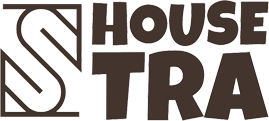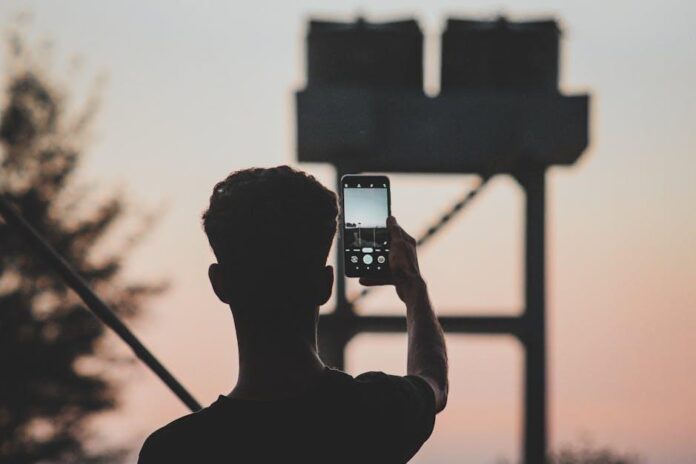In a world where relentless deadlines and digital distractions reign supreme, a good night’s sleep can feel like an elusive dream. For the millions grappling wiht insomnia, the quest for restful slumber frequently enough becomes an all-consuming battle, prompting many to seek out innovative solutions. Enter sleep tech wearables—an emerging realm of gadgets designed to monitor, measure, and ultimately enhance our nightly rest. From smartwatches that track sleep patterns to headbands that use binaural beats to lull you into a deeper state of relaxation, technology is stepping in to revolutionize the way we approach sleep health. But with a myriad of options flooding the market, which devices truly deliver on their promises? In this article, we delve into the landscape of sleep tech wearables, exploring their features, benefits, and effectiveness in the fight against insomnia. Join us as we uncover which devices help most in reclaiming your nights and revitalizing your days.
Exploring the Science of Sleep: How Technology Can Alleviate Insomnia
As we delve into the intricate relationship between sleep and technology, it’s essential to recognize how various wearables can play a pivotal role in alleviating insomnia. These devices do not merely track sleep patterns; they serve as extensive tools that encourage better sleep hygiene and lifestyle adjustments. **Fitness trackers** and **smartwatches**, as an example, monitor heart rates, body temperature, and movement throughout the night, providing insights that can help identify potential disturbances. Moreover,many of these technologies come integrated with features that promote relaxation,such as guided breathing exercises,soothing music,and even ambient light therapy that mimics a natural sunset.
While the functionality of these devices can significantly enhance sleep quality, it’s vital to choose the right one tailored to your specific needs. Hear’s a quick overview of some popular sleep tech wearables and their standout features:
| Device | Key Features | best For |
|---|---|---|
| Oura Ring | Sleep tracking, body temperature monitoring | Data-driven insights |
| Fitbit Charge 5 | Heart rate variability, stress management | Overall wellness |
| Withings Sleep | Snoring detection, sleep cycle analysis | environmental factors |
By integrating these devices into your nightly routine, you can gather invaluable data that can inform lifestyle changes and foster a more restful sleep habitat. As technology continues to advance, the possibility to tailor sleep solutions becomes increasingly personalized, enabling you to combat insomnia with confidence and clarity.

Top Wearable Devices: Features and Benefits for Managing Sleep Disorders
Wearable devices have revolutionized the management of sleep disorders, offering innovative features that cater to both diagnosis and ongoing treatment. Features such as **real-time sleep tracking**, **heart rate monitoring**, and **stress level assessment** provide users with a comprehensive view of their sleep patterns. Many devices employ **advanced algorithms** to analyze sleep stages, helping individuals understand the quality and duration of their slumber. The integration of mobile apps further enhances user experience by allowing for trend tracking over time, enabling tailored insights and actionable recommendations aimed at improving sleep hygiene.
The benefits of using these peripherals extend beyond mere tracking capabilities. They often incorporate features such as **smart alarms** that wake users during the lightest sleep phase, minimizing grogginess. Some wearables even promote relaxation techniques through guided breathing exercises or soothing sounds, directly addressing insomnia symptoms. Importantly, the data collected by these devices can foster communication with healthcare professionals, ensuring that interventions are based on accurate and personalized information. To illustrate the range of options available, here is a quick comparison of some popular devices:
| Device | Key Features | Benefits |
|---|---|---|
| Fitbit Charge 5 | Sleep Score, Heart Rate Variability Monitoring | Comprehensive sleep analysis |
| Oura Ring | Advanced Sleep Tracking, Temperature Sensor | Discreet wear, personalized insights |
| Apple Watch Series 8 | Sleep Stage Tracking, Mindfulness App | Integrates health metrics, offers guided relaxation |
| WHOOP Strap 3.0 | Strain & Recovery Metrics, Sleep Coach | Data-driven fitness and recovery insights |

User Experiences and Expert Opinions: Evaluating the Most Effective Solutions
Users have reported a variety of experiences with sleep tech wearables aimed at alleviating insomnia. Devices such as **Oura Ring** and **Fitbit** have become popular for their ability to track sleep patterns and provide personalized insights. Many users praise the Oura Ring not just for its sleek design, but for the accuracy of its heart rate variability and sleep stage tracking. In contrast, some Fitbit users have voiced concerns over inaccuracies in sleep tracking, particularly when it comes to differentiating between light and deep sleep. Regardless,the overall sentiment remains that both devices empower users by offering actionable data,which they can use to make informed lifestyle changes.
Experts in sleep medicine emphasize the importance of combining technology with behavioral strategies for optimal results. **dr. Rachel Manber**, a prominent sleep researcher, suggests that while wearables can offer valuable information, they should not replace clinical interventions when necessary. Additionally, a recent study found that users benefitting from guided sleep programs via apps associated with these wearables reported important improvements in both sleep quality and duration.As a point of reference,here’s a brief comparison of some commonly discussed wearables:
| Device | Features | User Feedback |
|---|---|---|
| Oura Ring | Heart Rate Monitoring,Sleep Staging,Activity Tracking | User Praise: Accurate metrics; Concerns: Price |
| Fitbit | Step Counting,Sleep Insights,Heart Rate | User Praise: Community features; Concerns: Sleep tracking inconsistencies |
| Whoop Strap | 24/7 Heart Rate Monitoring,Strain and Recovery Metrics | User Praise: Data analysis; concerns: Subscription model |

Choosing the Right Sleep Tech: A Guide to Personalized Recommendations
When navigating the landscape of sleep technology, it’s crucial to focus on personalized recommendations that resonate with your specific needs. **Sleep tech wearables** offer a myriad of features, but not all are created equal. Look for devices that not only track your sleep cycles but also provide insights into your sleep quality and duration. Features to consider include:
- Heart Rate Monitoring: This can help assess stress levels and overall health during sleep.
- Sleep Staging: Understanding the various stages of sleep you experience can highlight patterns and areas for improvement.
- Smart Alarms: Wake up gently during light sleep for a more refreshing start to your day.
Equally important is the compatibility of wearables with your existing lifestyle and preferences. Some devices offer mobile apps that analyze your sleep data and provide tailored recommendations. Consider features like:
| Device | Key Features | Best For |
|---|---|---|
| Fitbit Charge 5 | Stress management, SpO2 tracking, Sleep scoring | Active users seeking comprehensive health data |
| Oura Ring | All-day activity tracking, Readiness score, Temp sensor | Minimalists who prefer jewelry-style wearables |
| Apple Watch | sleep tracking, Heart rate notifications, Respiratory rate | iPhone users who want an all-in-one device |
Future outlook
as we conclude our exploration of sleep tech wearables designed to combat insomnia, it becomes clear that these innovative devices offer a diverse range of solutions tailored to meet individual needs. From smart sleep masks that track your REM cycles to advanced sleep monitors that harness the power of AI, the options available today can empower individuals to take charge of their sleep health. While no single device can guarantee restful nights for everyone, understanding the strengths and limitations of each wearable can help you make an informed decision.
As you embark on this journey towards better sleep, remember that building a holistic sleep strategy might mean combining technology with other sleep hygiene practices. Whether you’re looking to enhance your nighttime routine or seek deeper insights into your sleep patterns, the right sleep tech can be a valuable ally. So, go forth with curiosity and an open mind—after all, quality sleep is not just a luxury, but a cornerstone of overall well-being. Sweet dreams await!



